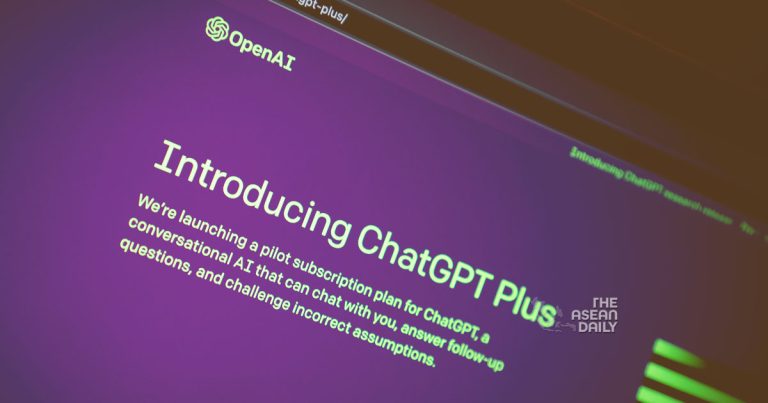1-12-2023 (SAN FRANCISCO) In the span of just one year, OpenAI’s ChatGPT has not only revolutionized the way people interact with artificial intelligence (AI) but has also triggered a wave of anxiety and debate surrounding its implications. Launched on November 30 last year, ChatGPT has become a global sensation, with approximately 100 million users engaging with it weekly, according to OpenAI.
Sasha Luccioni, an AI researcher, noted the significant shift in public awareness about AI, attributing it to ChatGPT. Previously, basic questions about AI dominated discussions at conferences, but now, people express concerns about the technology potentially “taking over the world.”
Unlike traditional AI applications that operated behind the scenes, ChatGPT positioned AI as the product itself. Users swiftly embraced the chatbot, employing it for tasks ranging from writing song lyrics and drafting emails to crafting speeches and even seeking emotional support akin to a personal therapist.
However, as ChatGPT gained popularity, concerns about its potential misuse and ethical implications emerged. Reports surfaced regarding misinformation dissemination, perpetuation of biases, job threats, and aiding academic dishonesty. Schools oscillated between banning and unbanning the service, regulators convened hearings on AI, and industry leaders signed a statement acknowledging the risks of AI.
The tension between the promise and perils of AI escalated just before ChatGPT’s one-year anniversary. OpenAI made headlines by firing its co-founder and CEO, Sam Altman, partly due to disagreements with the board on the pace of AI development and monetization. Altman was later reinstated following a mutiny by employees.
Fei-Fei Li, co-director of Stanford’s Human-Centered AI Institute, emphasized the anxiety created by the “hype talk around AI,” leading some to fear a future where AI surpasses human capabilities. Despite concerns, AI continued to advance, with OpenAI introducing more powerful models, customizable experiences, and speech recognition features for ChatGPT.
Investment in generative AI startups soared to over US$21 billion in the first nine months of the year, reflecting a substantial increase from the previous year’s US$5 billion. Tech giants like Microsoft, Amazon, and Google led the funding charge, reshaping the landscape of the tech industry.
Industries beyond tech also embraced AI applications. JPMorgan experimented with AI-generated earnings summaries and helpdesk services, healthcare professionals used AI for note-taking, media companies utilized AI for article writing (albeit with errors), and politicians turned to AI for various tasks.
The job market witnessed a surge in AI-related roles, with a November report from Indeed revealing a twentyfold increase in jobs mentioning AI in the title or description since ChatGPT’s launch. Despite explosive growth, AI roles remain a fraction of overall job listings.
ChatGPT, while sparking the generative AI frenzy, is just one player in the expanding landscape. Other AI chatbots, such as Bard, Claude, Pi, Grok, and Amazon’s recent addition Q, are gaining prominence. The market for generative AI is poised for continued growth and advancement.
As the conversations and debates surrounding AI intensify, Fei-Fei Li emphasized the need for responsible use, education, and context. While ChatGPT may have marked a significant inflection point in AI, it is just one milestone in the ongoing evolution of this transformative technology.




